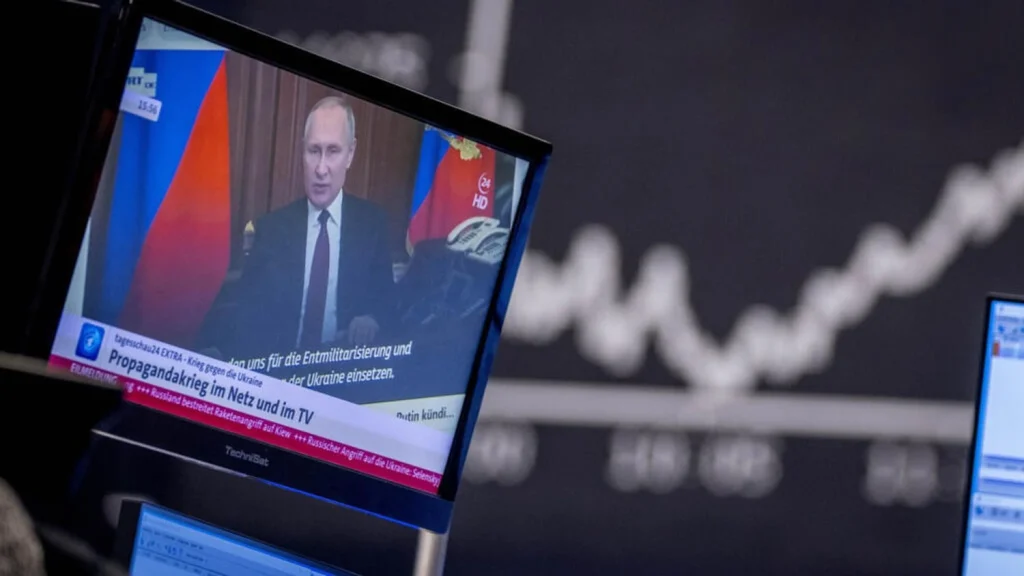Listen to the article
The European Union is set to establish a new center dedicated to combating disinformation threats emanating from Russia and other authoritarian regimes, according to a report by The Guardian. The initiative comes in response to what EU officials describe as “intensified hybrid attacks” that spread false information across social media platforms and undermine democratic institutions.
The European Commission plans to create a Center for Democratic Resilience that will unite experts from all EU member states and candidate countries to jointly counter foreign interference and information manipulation. This center represents a key component of the “Democracy Shield” concept introduced by Commission President Ursula von der Leyen during her campaign for a second term prior to the 2024 European Parliament elections.
Von der Leyen first proposed the creation of this resilience center in her September address to Members of the European Parliament. A forthcoming document, scheduled for release on November 12, will provide additional details about the initiative and outline the Commission’s assessment of the primary threat actors.
“In addition to its brutal war of aggression against Ukraine, Russia is also intensifying hybrid attacks, waging a struggle for influence against Europe,” states the draft document. “By spreading false information, often with manipulations and distortions of historical facts, they try to undermine trust in democratic systems.”
The European External Action Service has documented numerous Russian disinformation campaigns, including Operation Doppelganger, which was active ahead of the European elections. This sophisticated operation involved creating replicas of established media outlets to disseminate anti-Western content. The campaign, believed to be active since 2022, created imitation websites of respected publications such as Die Welt, Le Point, La Stampa, and Polskie Radio. These fake sites published fabricated articles that were then amplified on social networks to discredit European politicians and erode support for Ukraine and Ukrainian refugees.
China has also been identified as a significant source of disinformation. According to EU diplomatic sources, Beijing employs private public relations firms and bloggers to create and distribute content that advances Chinese political interests. Research by Citizen Lab in 2024 identified 123 websites impersonating legitimate news agencies across 30 countries in Europe, Asia, and Latin America that were disseminating pro-Chinese propaganda.
The new EU center will serve multiple functions: facilitating information exchange between member states, providing early warning of disinformation campaigns, and raising public awareness about foreign attempts to manipulate the information environment. Participation in the center will be voluntary for EU countries and candidate states, with the Commission noting that “like-minded partners,” including the United Kingdom, can also join the initiative.
Other elements of the broader “Democracy Shield” plan include establishing an independent network of fact-checkers to combat disinformation during critical periods such as elections, health crises, and natural disasters. Brussels also intends to create a network of opinion leaders to promote democratic principles and EU standards in digital spaces.
The urgency of this initiative is underscored by recent intelligence findings. A joint report by GLOBSEC and the International Centre for Counter-Terrorism (ICCT) presented to the European Parliament revealed that the Kremlin has established a network of agents for hybrid warfare operations against Europe. These networks reportedly recruit marginalized individuals, particularly Russian-speaking men with criminal backgrounds, to conduct various influence operations.
The establishment of the Center for Democratic Resilience comes amid broader concerns about Russia’s increased spending on propaganda. Recent reports indicate that while Russia has cut funding for various state programs, it has simultaneously boosted allocations for propaganda efforts, suggesting a strategic prioritization of information warfare in its broader geopolitical strategy.
Fact Checker
Verify the accuracy of this article using The Disinformation Commission analysis and real-time sources.




14 Comments
The launch of this EU center is a significant step in the fight against disinformation. Coordinating anti-disinformation efforts across the bloc is critical to safeguarding democratic institutions and processes.
Curious to see how the center will approach international cooperation and information-sharing to counter cross-border disinformation campaigns.
Given the scale and sophistication of modern disinformation campaigns, a centralized EU-wide response is sorely needed. Strengthening democratic institutions against foreign influence is vital for the region’s security.
I hope the center will leverage the expertise of member states and work closely with social media platforms to identify and counter disinformation narratives effectively.
While the details are still emerging, this ‘Democracy Shield’ concept appears to be a proactive and necessary step. Combating Russian and other authoritarian disinformation should be a top priority for the EU.
Curious to see how the center will balance its mandate to protect democratic processes with principles of free speech and press freedom. Striking the right balance will be key.
Combating disinformation is critical for maintaining democratic resilience. This new EU center seems like a promising initiative to coordinate efforts against foreign interference and manipulation across the bloc.
I’m curious to see what specific strategies and tools the center plans to employ. Coordinating anti-disinformation efforts at the EU level could be very impactful.
Establishing a dedicated EU-level center to counter disinformation is an important move. Hybrid threats and information manipulation pose serious risks to democratic institutions, so a coordinated response is vital.
I hope the center will work closely with civil society groups, fact-checkers, and independent media to amplify accurate, trustworthy information and debunk false narratives.
Disinformation is a growing threat to democratic societies worldwide. This new EU center represents a timely and necessary response to combat malign foreign influence campaigns.
I hope the center will adopt a multifaceted approach, leveraging both technological and human-centric solutions to identify, analyze, and neutralize disinformation narratives.
Kudos to the EU for taking this issue seriously and creating a centralized hub to tackle foreign disinformation. Protecting the integrity of democratic processes should be a top priority.
It will be interesting to see how the center approaches collaboration with tech platforms and other stakeholders to develop effective counter-strategies.